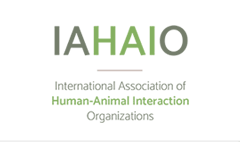Abstract
The impacts of companion animals on human well-being have been receiving increased media and research attention, especially in relation to the COVID-19 pandemic. Previously, there have been calls for research to consider the major components of subjective well-being separately and for research designs to include assessments over time. In line with this suggestion, the purpose of this study was to gain a more comprehensive understanding of how being a dog guardian can impact affect and contribute to the overall assessment of subjective well-being. This study used a seven-day diary design to capture 31 dog guardians’ day-to- day feelings and thoughts during the UK’s first COVID-19 lockdown—an example of a time of considerable stress and crisis. Closed-ended questions examined the impact of dog behavior, feelings toward dogs, participation in dog-related activities, and guardians’ subjective well-being, while open-ended prompts were used to explore guardians’ positive and negative affect. Results suggest that dog guardianship impacted subjective well-being during this time of stress and crisis. Findings indicate that dogs’ behavior, feelings toward dogs, and participation in dog-related activities impacted the overall day-to- day subjective well-being of guardians. Additionally, six themes emerged related to positive and negative affect: amusement, joy, calm, frustration, worry, and guilt. These positive and negative affect findings help to explain some of the previous inconsistencies in pet effect–related research confirming that companion animals do impact subjective well-being. However, the effect is not always positive or consistent, and may be transient. In times of stress and crisis, companion animal guardians can face unique circumstances and could benefit from preparation, guidance, and clear communication about caring for their companion animals.
Recommended Citation
Hoy, Lori S.; Stangl, Brigitte; and Morgan, Nigel
(2023)
"Dog Guardians’ Subjective Well-Being During Times of Stress and Crisis: A Diary Study of Affect During COVID-19,"
People and Animals: The International Journal of Research and Practice: Vol. 6
:
Iss.
1,
Article 6.
Available at:
https://docs.lib.purdue.edu/paij/vol6/iss1/6


